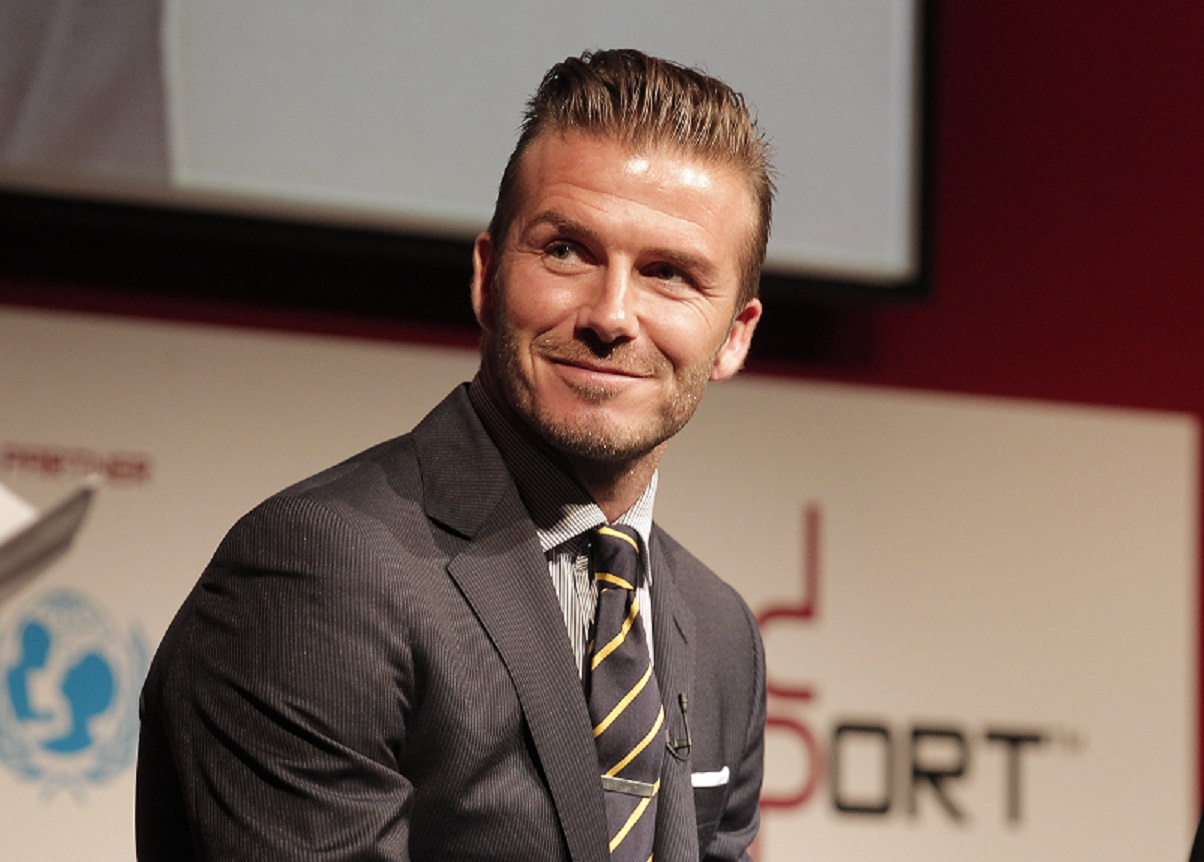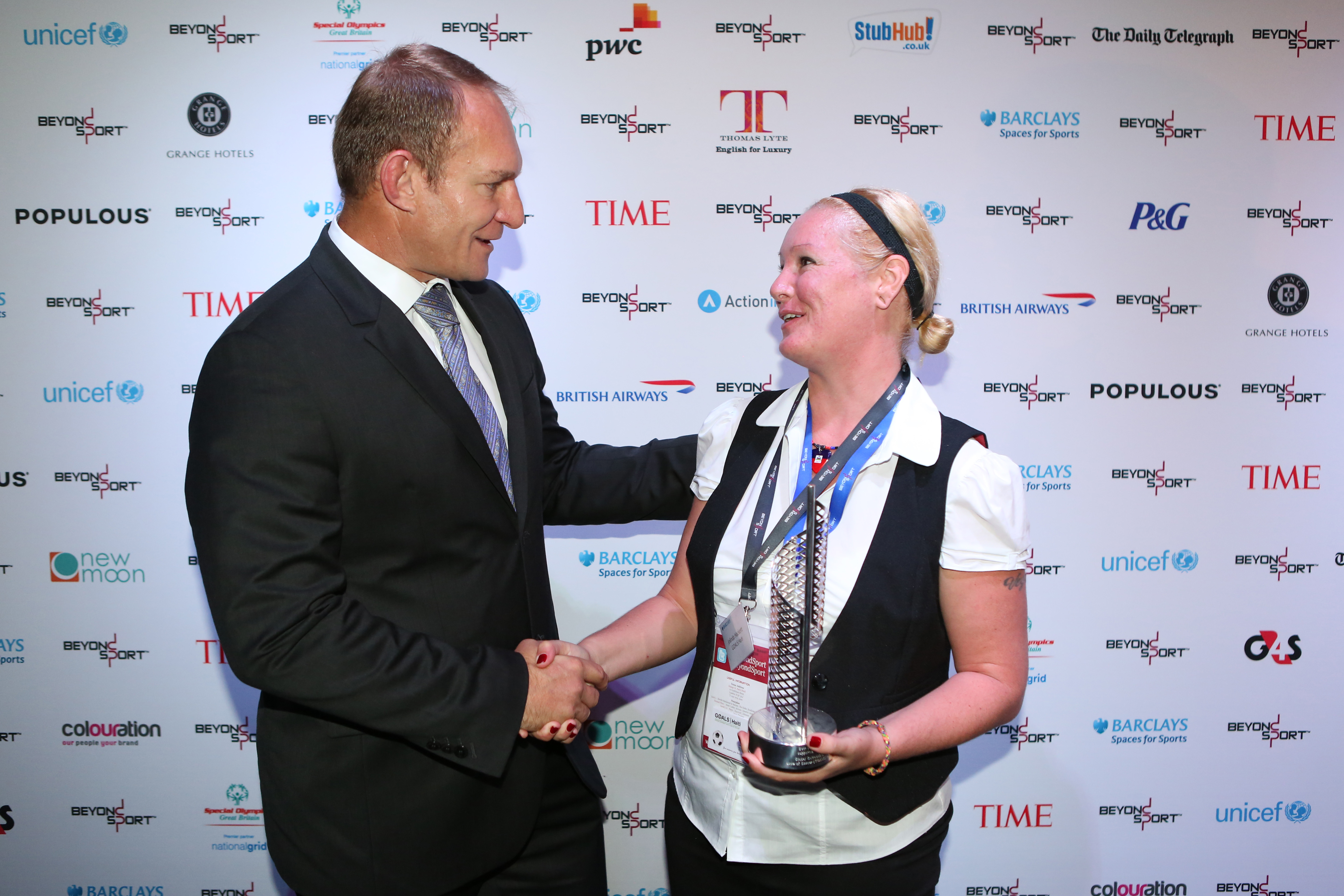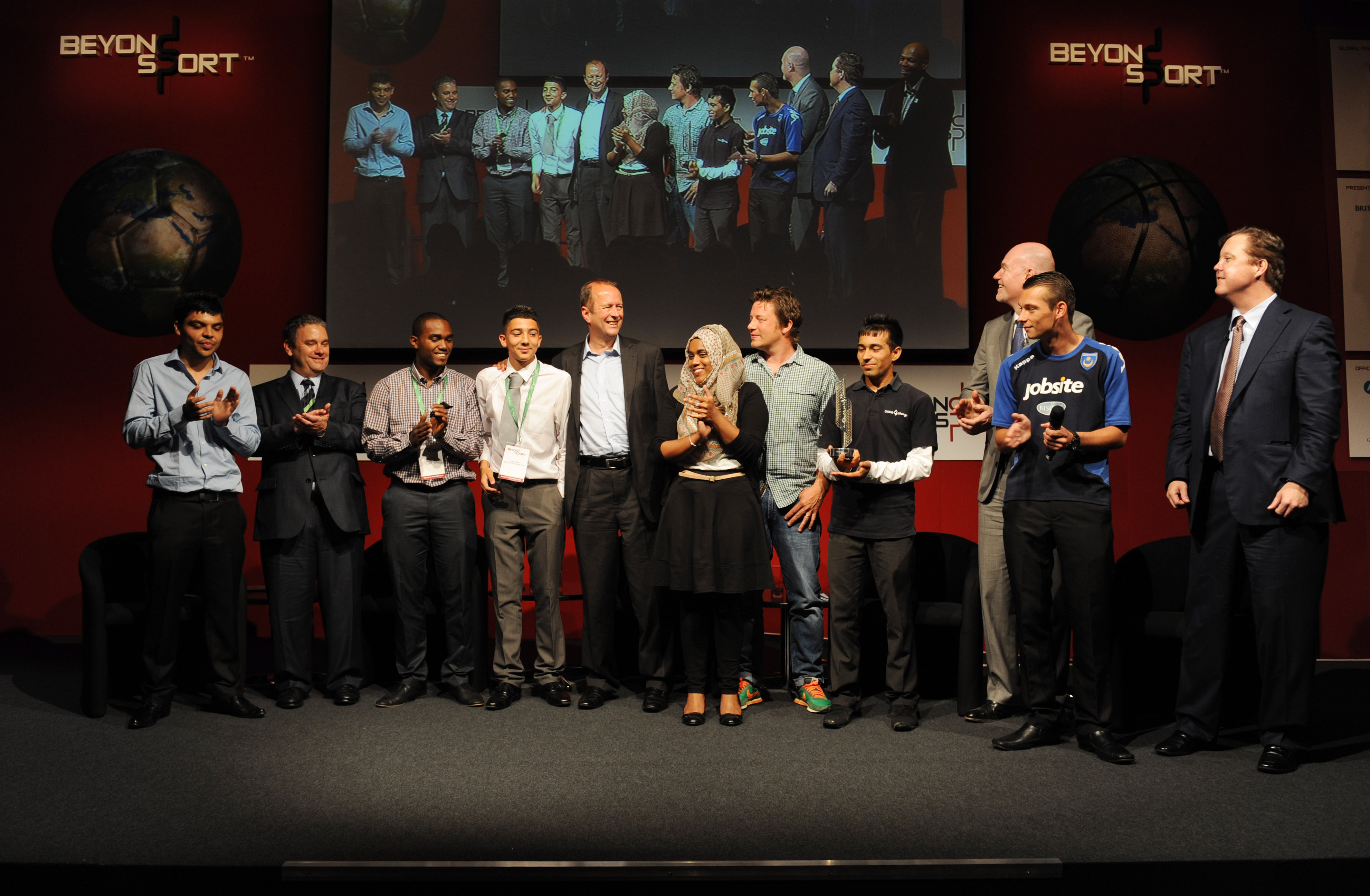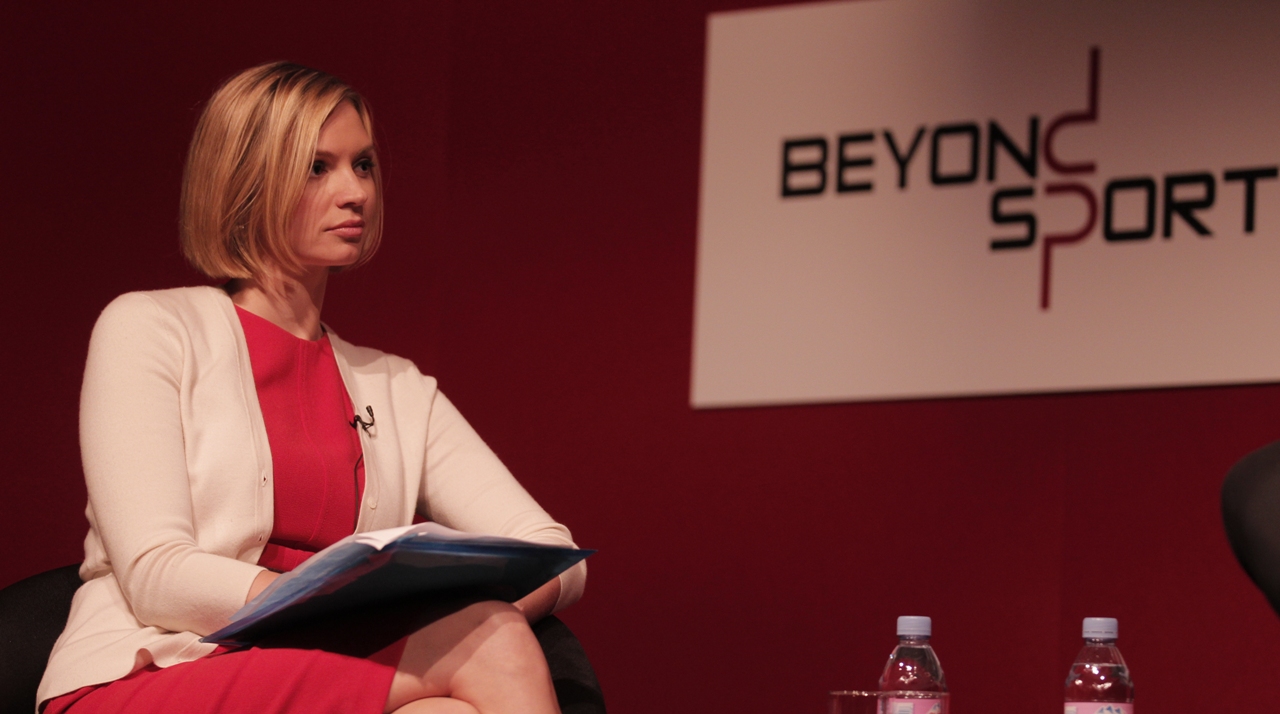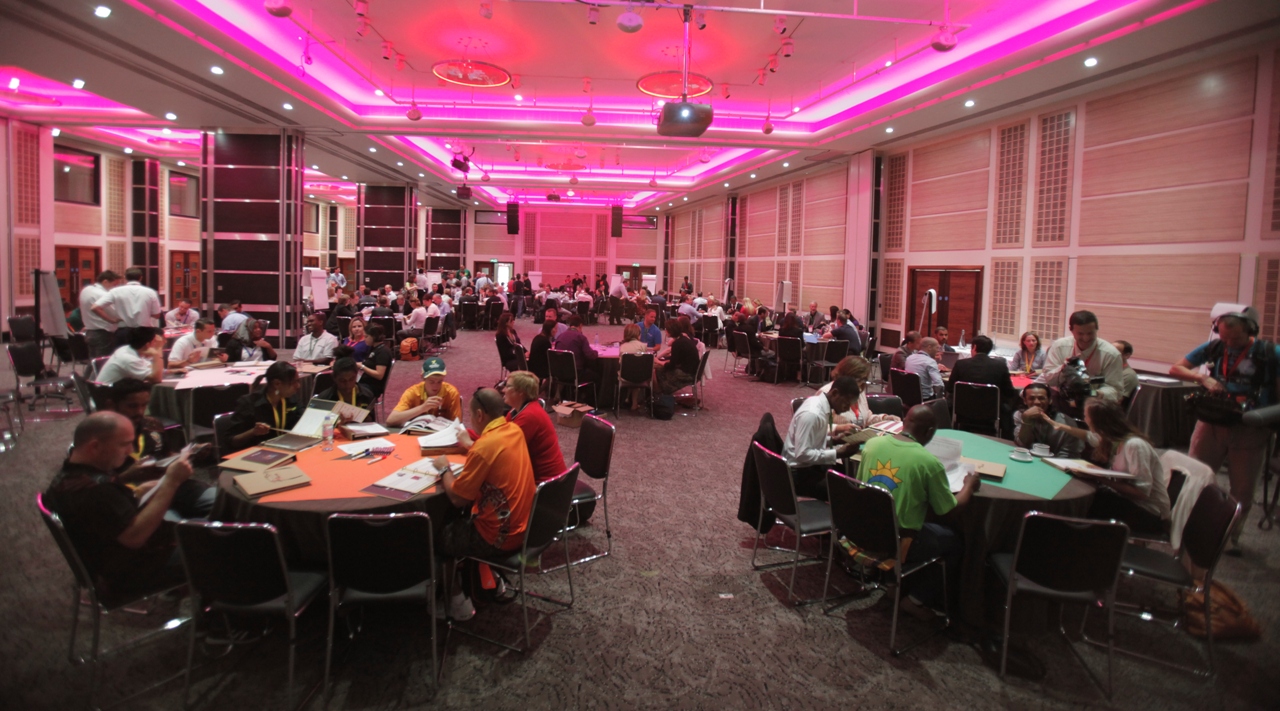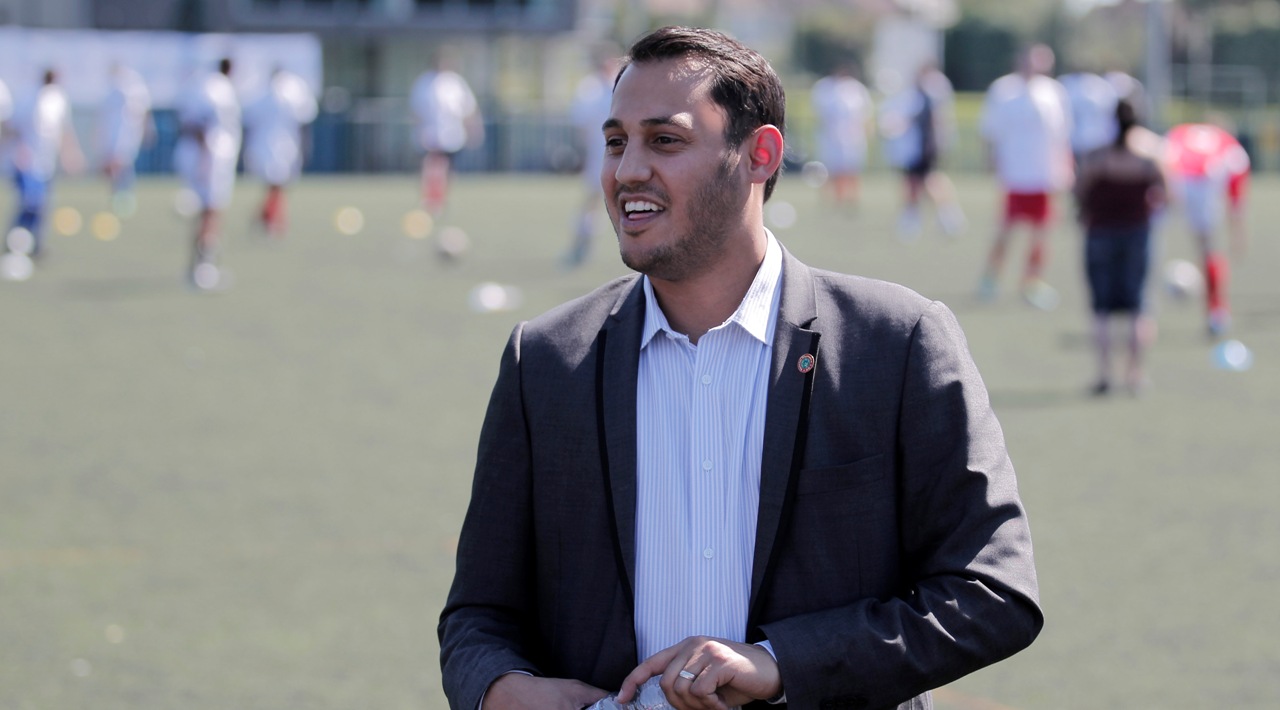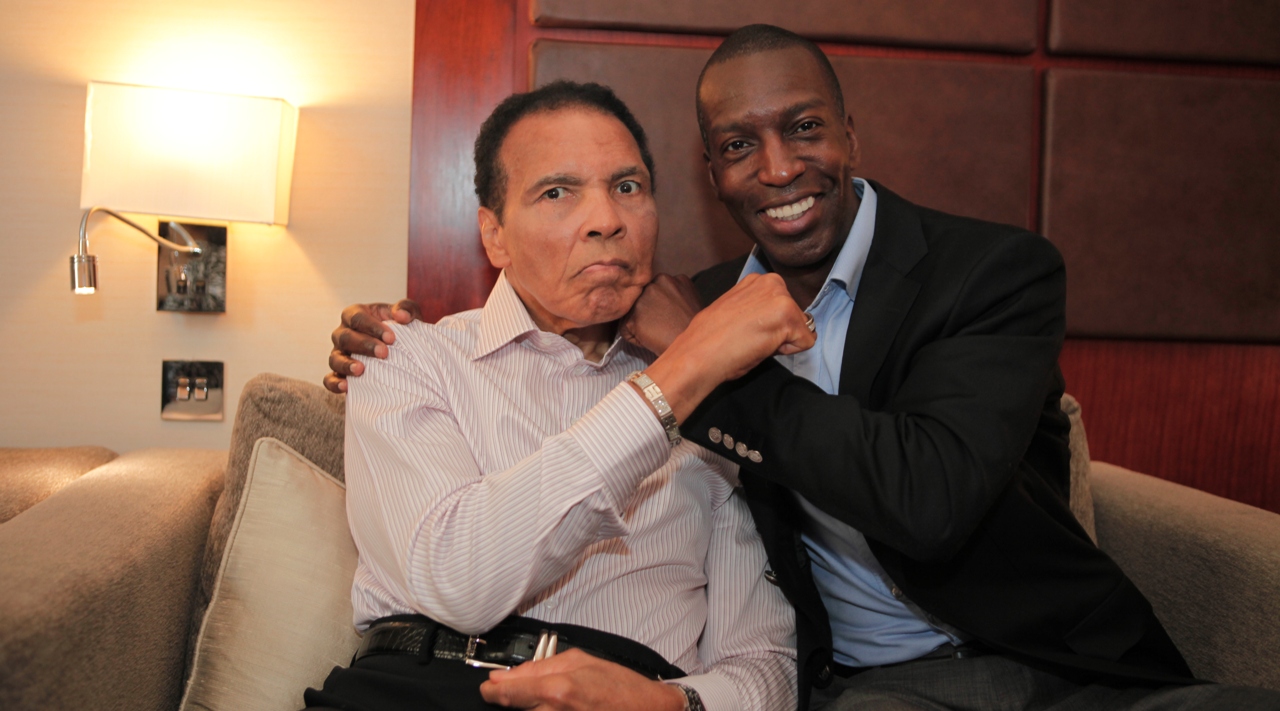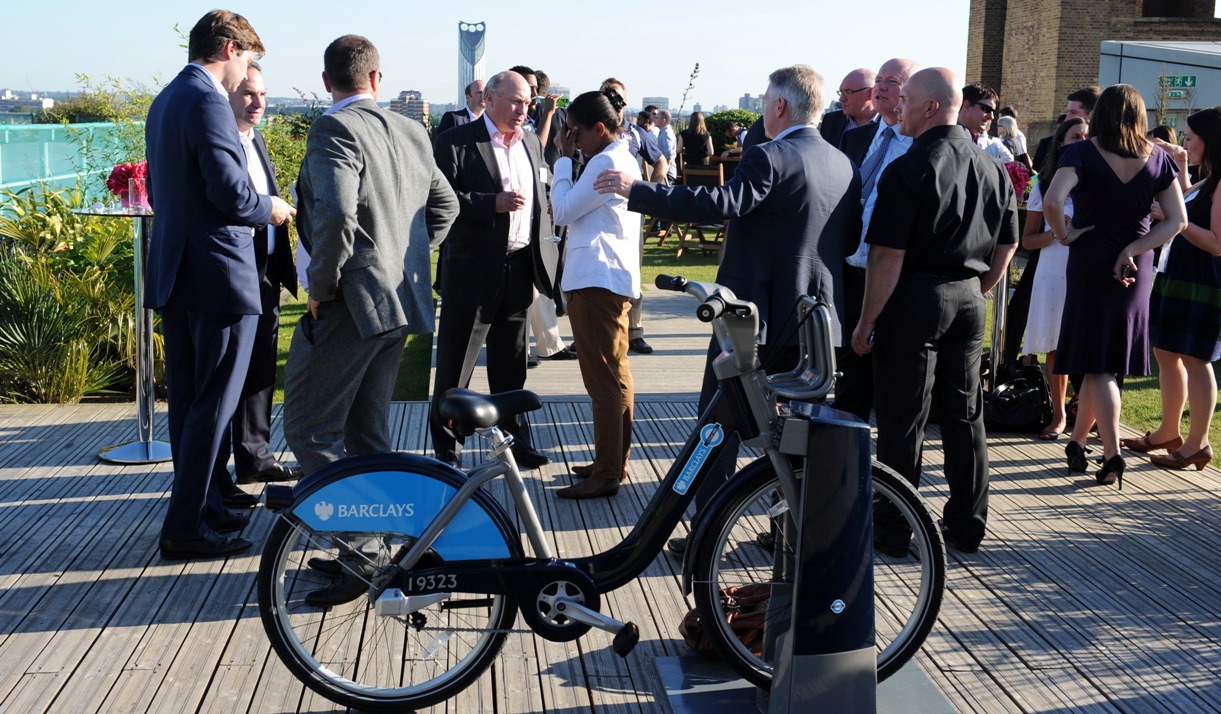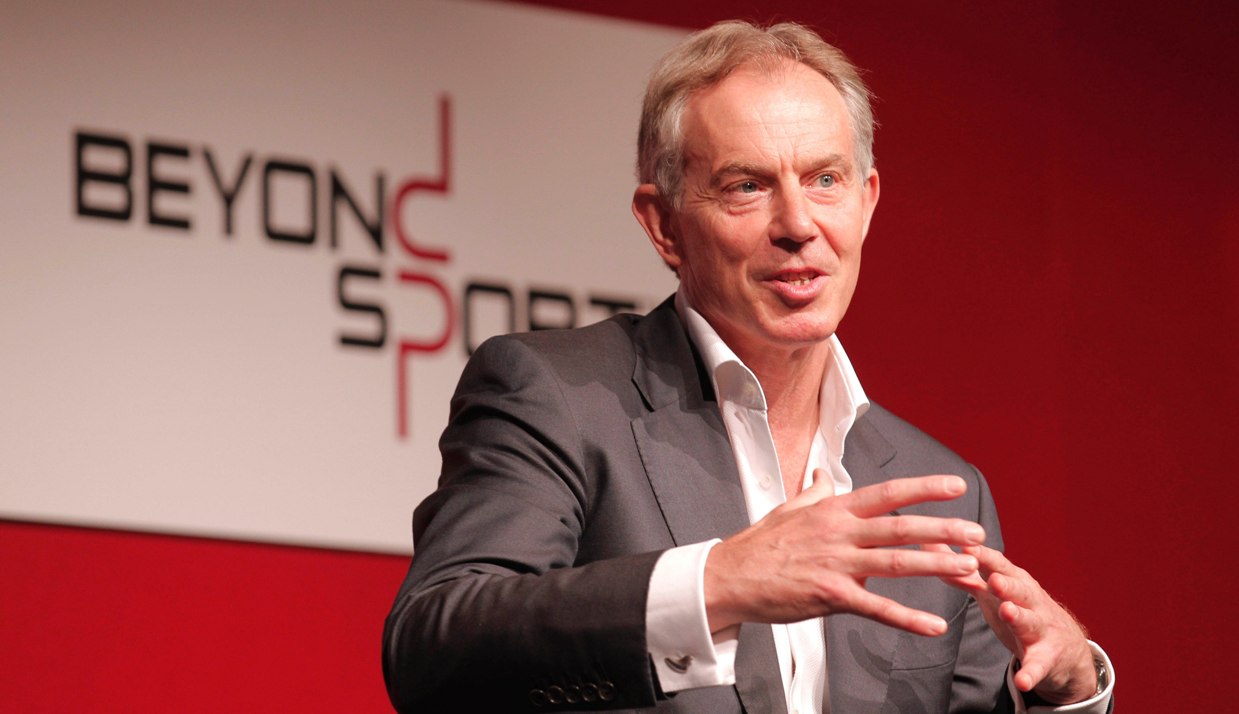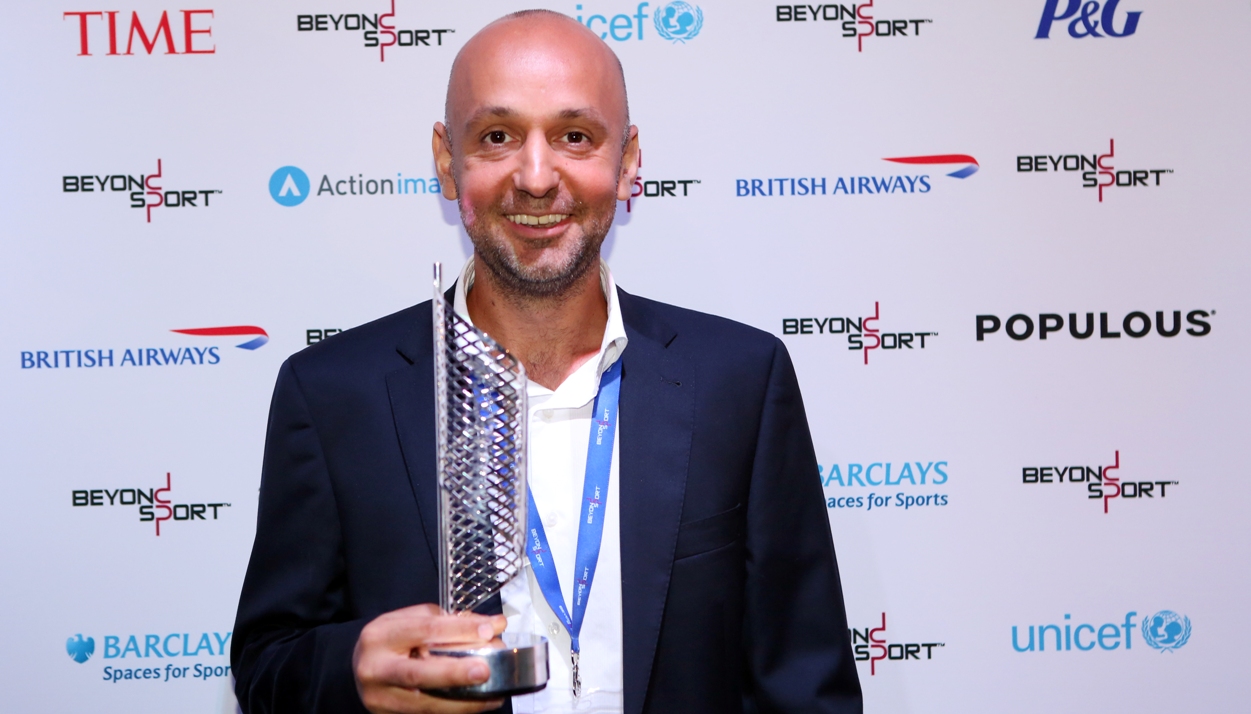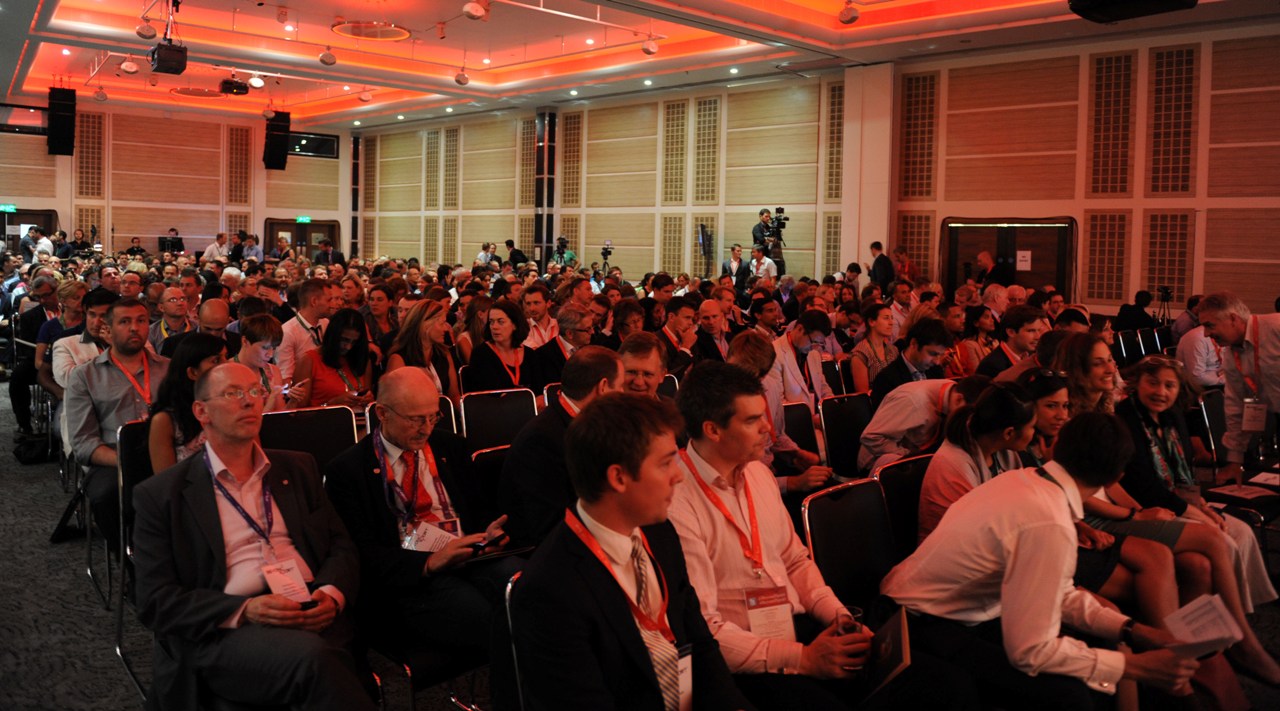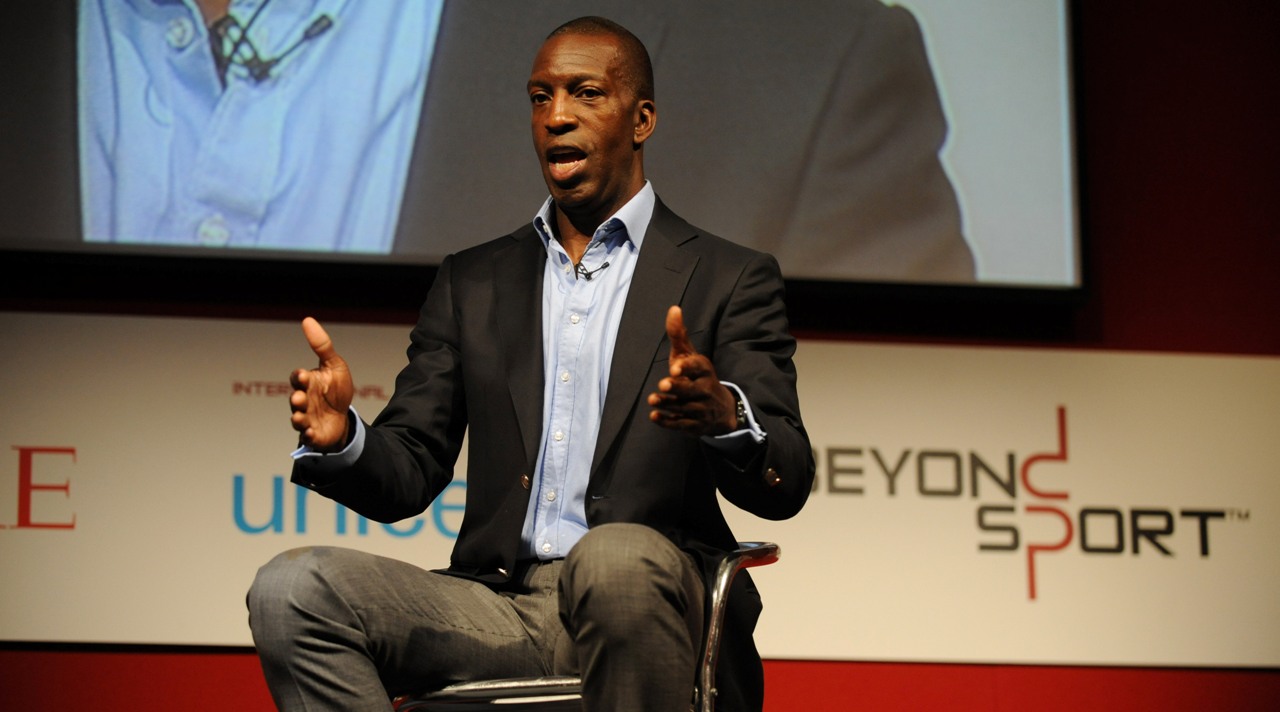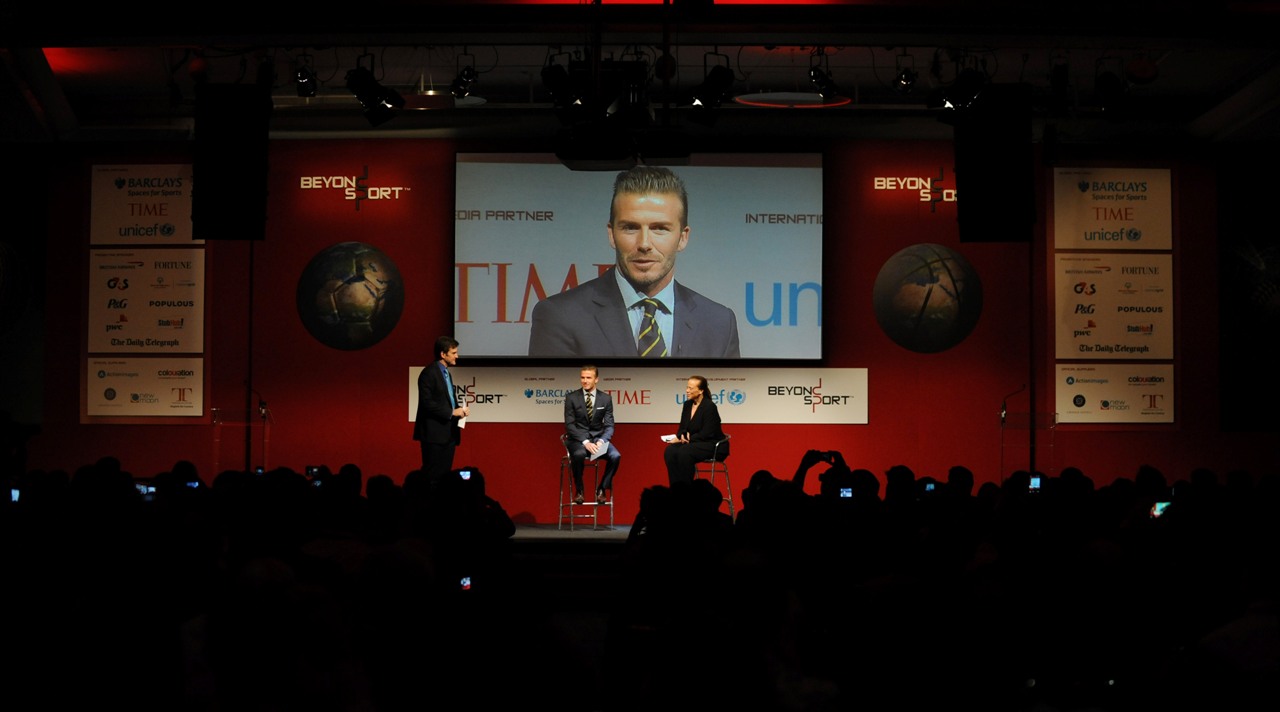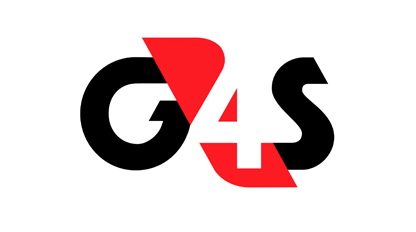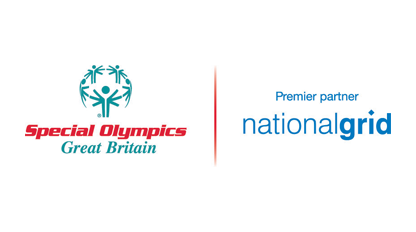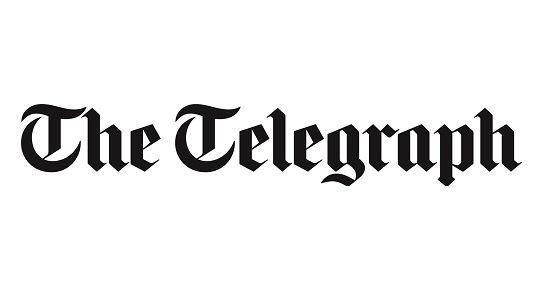Just two days before the Olympics Opening Ceremony in London, the annual Beyond Sport Summit brought together over 750 individuals to take action, discuss, partner, and be inspired around how sport can and should be doing more to trigger social change. The week was packed with a diverse collection of events, from a full day around football at Emirates Stadium, to a first-ever gathering for rugby at Twickenham, to a roundtable with key stakeholders in sport and sustainability, to forums on social inclusion, child protection, youth leadership, cricket-for-good, and sport-4-development investing and funding.
Truly inspirational speeches were given; insightful panels discussed what works and what doesn’t; new friends, contacts and partnerships were made; and Beyond Sport’s passionate belief that sport can change the world was spread even further in what was the strongest Summit to date.
Day 1
Delegates broke into special workshops, each led by expert organisations like Football Foundation, StreetChance, Ebay Charities and UEFA on practical and tangible learnings to help improve approaches around communications, funding, measurement & evaluation, partnerships and curriculum. The afternoon offered the opportunity to delegates to visit one of eight different sports programmes around London. Attendees did everything from kayak down the Thames to play ‘blind’ cricket to dribble the ball alongside Special Olympics participants at the iconic White Hart Lane stadium.
The day was topped off by a special reception, hosted by Global Partner Barclays, at Cannon Bridge Roof Gardens, overlooking London – a city on the verge of the greatest show in sports history. Meanwhile, PwC hosted a special gathering to showcase the instrumental support and consultancy contribution it has made to previous Beyond Sport Award Winners.
Day 2
Delegates focused on key issues that were relevant to their own goals and missions. Smaller group sessions provided more opportunities for discussion and the specific topics created an opportunity to address issues on a deeper level. Special full-day and half-day sessions were held on a myriad of topics that focused on a specific sport, social issue, or action plan, such as:
The Social Inclusion Forum – Brought together more than 50 individuals involved in the sector , including Baroness Tanni Grey-Thompson, to learn and share more about how they can expand their programmes around social inclusion. Addressing issues from disability, to racism, to economic empowerment, to religious tolerance, to gender equality, the Forum enabled attendees to learn more about specific ways to engage excluded groups, developed new approaches to raising awareness and outlined specific action points on moving forward.
The Cricket-For-Good Session – Over 40 stakeholders, including the new ICC President Alan Isaac, discussed the federation’s new engagement strategy and learned new ways to utilise cricket a catalyst.
The Sport and Sustainability Roundtable – Attended by key players in this space representing organisations like London 2012, Rio 2016, Green Sports Alliance, Populous, World Wildlife Fund, and others. A pledge to develop a responsible sports network around sustainability was agreed by all in the room.
The Youth Leadership Roundtable – UK Sport hosted nearly 40 practitioners and deliverers to discuss how they can unlock potential from their participants and young coaches to maximise the social impact they are having
Safe-Guarding Children Special Session – Organisations including the NSPCC, CEOP, UNICEF, Commonwealth Games Secretariat, and Women Win came together for an intensive full-day session around how to make child-protection guidelines in sport more effective and accessible.
The evening of Day 2 saw history in the making: Over 650 delegates watched Multi-Olympic Gold Medallist Michael Johnson do the TIME Interview, followed by a once-in-a-lifetime moment as David Beckham and Muhammad and Lonnie Ali presented 19-year-old Matiullah Haidar with the first ever Generation Ali Beyond Sport Award, which recognises a young person who has overcome adversity through sport.
Day 3
On the final day of the Summit, delegates gathered in front of the main stage for high-profile and compelling panels, interviews and speeches. Leaders such as Former British Prime Minister Tony Blair, South African Rugby World Cup Winner Francois Pienaar, Muhammad Ali Center CEO Lonnie Ali, and Premier League CEO Richard Scudamore discussed the issues at the very heart of the event: sport’s ability and limitations when it comes to addressing major global issues.
Baroness Tanni Grey -Thompson – Britain’s most decorated Paralympian who now sits in the House of Lords – discussed sport’s role in addressing disability and gender issues; Alberto Vollmer, Founder of Project Alcatraz, talked about how rugby helped to disarm gangs in his community in Venezuela; and Martin Bell, UNICEF UK Ambassador and former conflict reporter discussed sport’s role in areas where populations are excluded by religion, ethnicity, culture. Celebrity Chef Jamie Oliver, SA Football CEO Robin Petersen, NASCAR CEO and Chairman Brian France, and Clarence House Communications Chief Paddy Haversen had the entire room hooked with thoughts on campaigning, professional sport’s resources and opportunities, and the power of the digital and social communications age.
Throughout Day 3 were special segments announcing the Beyond Sport Awards Winners. Captivating AV and celebrity presenters created an audience in anticipation as each category was taken by changemakers using sport in innovative and impactful ways throughout the world. Winners included a skateboarding programme from Afghanistan, a football project set up in Haiti after the catastrophic earthquake, an education initiative in the ghettos of Bucharest, Romania, and a health-and -hygiene project harnessing the power of footballers across Africa. Tears, celebrations and disbelief consumed the winners as they took the stage to accept their trophies and be recognised on a global platform. Winners of the community awards received funding and business support for their programmes.
